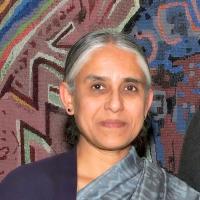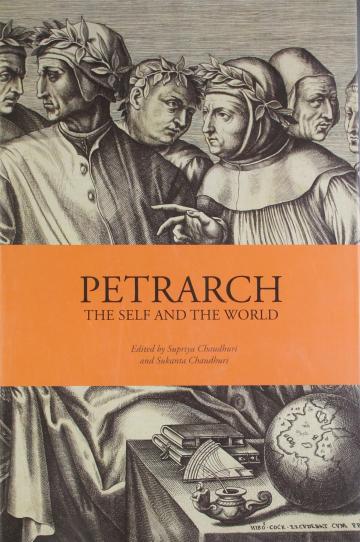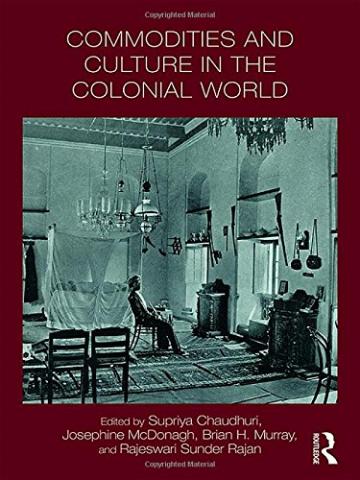Supriya Chaudhuri: Reflections of a Visiting Fellow
Supriya Chaudhuri reflects on her interdisciplinary, interperiod, and international academic career...
As my current Visitorship at Oxford – Michaelmas Term 2018 – draws to a close, I find myself reflecting on the range of early modernists’ interests, if not the range of early modernism. I was an undergraduate at Oxford (St Hilda’s), where I took a second BA in English Language and Literature in 1975 (my first was from Presidency College, Calcutta) and I returned to Oxford to do a DPhil in Renaissance literature at St Anne’s (1978-81). I think it was John Carey, my undergraduate tutor for the ‘Spenser and Milton’ special paper, who made me think about research on Spenser and Renaissance philosophy and mythography. I had a wonderful supervisor in Glenn Black (and worked with Nicholas Mann too). I can’t recall happier times than the long hours I spent in Duke Humfrey’s, the Taylorian, and the Warburg Institute in London, working on the idea of metamorphosis, which was the subject of my DPhil thesis. I did keep up my early modern interests after returning to India in 1981, contributing to Bert Hamilton’s The Spenser Encyclopaedia and writing articles on medieval allegory, iconography, and Shakespeare. But it was a struggle to be so far away from my primary sources -- those were the days before EEBO, and so much else in the digital realm that we take for granted now, and travel too was difficult for Indian academics. Still, I’ve continued to work on Shakespeare, Spenser, even Petrarch – I co-edited a book called Petrarch: the Self and the World (2012) – though largely in the form of the long essay rather than the monograph (for example, a study of Adlington’s translation of Apuleius in Renaissance Studies, 2008). I was happy to contribute to Jane Grogan’s Celebrating Mutabilitie (2010), marking 400 years of Spenser’s Mutabilitie Cantos (1609), and to several Shakespeare collections, the latest – in press – being an essay called ‘Eyes Wide Shut: Seeing and Knowing in Othello’ for Subha Mukherji’s Blind Spots of Knowledge in Shakespeare and his World (Medieval Institute Press, forthcoming). I also have several essays on early modern travel and travellers, with ‘”Not Fit for any other pursuit”: Shifting Places, Shifting Identities in Ludovico de Varthema’s Itinerario’, forthcoming in a collection edited by Ladan Niayesh and Claire Gallien. It’s been great spending some time, here at Oxford, in the interstices of other research, looking at John Wolfe’s editions of Machiavelli from the 1580s, with fake Italian imprints, while planning an essay on Machiavelli’s odd, unfinished poem, L’asino d’oro.
But perhaps it was John Carey, with his formidable range of interests (Dickens, intellectuals, Golding) who was an unconscious influence behind my opening up several other research fronts during the decades that I’ve spent teaching in India – at Presidency College and at Jadavpur University, Calcutta. I’ve worked on intellectual history, especially Indian literary and cultural history in the late nineteenth and early twentieth century, on global modernism, on narrative, on travel, on material culture, on the city and urbanism, on the cultural history of sport, and on translation (and I’ve translated extensively from Bengali into English). As director of the Centre of Advanced Study in the Department of English at Jadavpur, I led a number of international collaborative projects, notably on urbanism and on material culture, a recent Leverhulme-funded network being concluded by the co-edited volume Commodities and Culture in the Colonial World published earlier this year (Routledge, 2018). I have published essays on modernism, the Bengali novel, on Tagore, on the earliest Indian English novel, on Virginia Woolf in India, on modernist communities, on boxing and mountaineering. My research project at Oxford, as TORCH Mellon Global South Visiting Professor this Michaelmas Term, is on ‘The Idea of the Modern’: and I have already delivered two public lectures, one called ‘What is the Modern?’ in Week 1, and the other, on ‘The Social Life of Modernism’, in Week 7. I will retain my association with TORCH for the entire year (until October 2019), so I’m happy to stay in touch with all researchers!
I think that a very important part of my long teaching career in a public university in India has been my close involvement with the role of the university, and of the humanities, in public life. I’ve advised on higher education policy and contributed to HE reports, but most of all, I’ve written and publicly engaged with the present crises of the public university, and the humanities, in chapters in edited books like The University Unthought: Notes for a Future, and The Place of the Humanities in our Universities (both Routledge, 2018) as well as in many other published essays and public lectures. I also reflect on the larger crisis affecting intellectual life, and the risk-filled environments in which the work of the mind must be carried on today, in ‘Reading Pasts, Thinking Presents: Reflections on the Nation, Representation, and Mourning’, in Revue des Femmes Philosophes, No. 4-5 (2018). In India, I would see myself as an activist on issues of higher education, the future of the arts, and gender, especially in the context of escalating violence towards women. So it is a tremendous privilege to be able to conclude my visit to Oxford as TORCH Visiting Professor this term with a Colloquium on ‘A State of Risk: Humanities in a Time of Crisis’, at TORCH, this Friday 30 November, 2018.
Professor Supriya Chaudhuri,
November 2018






